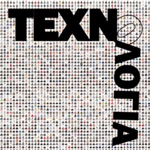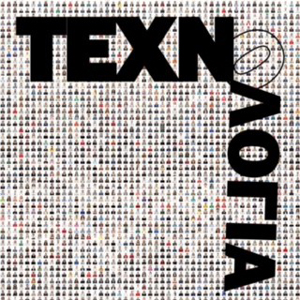Loving Dystopia, Πράγα [17/3 – 18/3, 2022]
Γιάννης Κουκουλάς2022-07-13T12:49:53+03:00
Literally the opposite of utopia, or ‘perfect place,’ the term dystopia was coined in the mid-19th century and has been used to both critique laws, policies and actions by those in power, and to describe states of being.
A dystopian society is generally seen as an imagined state of existence or an imagined society, characterized by gross imbalances of power, injustice, cruelty, suffering and hopelessness, with either totalitarian or nonexistent — or at least invisible — and always unethical forms of government.
It sounds pretty grim, a place none of us would want to visit let alone live in. Yet dystopian literature, film and television are among the most popular of genres, drawing millions of readers and viewers to each newly imagined dystopic world. And it’s been this way since the late 18th century when Jonathan Swift published what is considered by many to be the first dystopian novel, Gulliver’s Travels. Though dystopias have evolved since then, often figured as occurring either after an apocalypse (though they differ from a post-apocalyptic world) or as a result of a long-term disintegration of society, they have only risen in popularity.
Since 2001 the world has seen its share of dystopian events including the rise of far right, fascist movements in political systems around the world, the worsening climate crisis, the rise in instances and awareness of terrorism—if not the underlying reasons for it—and the Covid-19 pandemic. These have in many ways shaped our daily lives, and we seem to be moving farther and farther away from any chance at a balanced, comfortable life, let alone a utopia. Yet, contrary to what might seem to make sense, this has only increased our desire to engage with dystopias. Instead of finding ways out of the darkness, we are actively choosing to run toward it—at least in fiction.
In this exciting, global and inclusive interdisciplinary event our goal is to examine the conceptualization, proliferation and ubiquity of dystopias, and their popularity.
To that end, we ask:
What is it about dystopias that have us seeking them out, willing to engage with each new version of a bleak future or dismal alternate version of reality? How have they become such an integral part of our lives that simply Googling the word brings up more than 100,000 hits, with unending lists of the top 50 or 100 dystopian novels, short stories, TV shows or movies?
What is it about a dystopia that keeps us turning the pages, that keeps us glued to our seats, and that makes it impossible to turn away from their forbidding, unspeakable futures? Is it that they are in a sense prophetic? Do we see our own futures? Do we use them to understand current events, political movements or politicians? Are they maps of places we do not wish to go, perhaps guides for actions we do not wish to take? Do we use them to look for clues in the world we live in to forestall our march toward disaster? Or perhaps do we use them as a measure of what lengths we ourselves would go to in order to survive in the situations they depict—and as a way of asking when those measures are necessary?
Key Topics
To start thinking about and perhaps answering these questions we invite artists, practitioners, independent scholars, early career researchers, photographers, academics, performers, and writers to send proposals for presentations, performances, workshops, art and more. We are committed to providing a platform for interdisciplinary interactions that are fruitful and conducive to broadening horizons and sparking future projects, collaborations, and connections.
We aim to explore dystopias of all kinds as we examine both the worlds imagined and the world in which we live, and why and how these dystopic imagined realities continue to resonate.
Possible topics include but are not limited to:
- Dystopias in: Films Television Literature
- The ways dystopias have changed through time
- Why dystopias change
- How dystopic futures are different depending on the culture from which they originate
- How they are the same
- What are commonalities in dystopias through time and across cultures
- What do dystopias say about humanity What do dystopias reflect about culture Are dystopias a way for a society, writ large, to imagine a way out What effect does the reading about and/or viewing dystopias have on readers/viewers Are younger people more or less affected by the idea of a dystopic future
- How do dystopias intersect with other bleak futures such as post-apocalyptic worlds How do dystopias factor into vampire, zombie, or other imagined worlds
And more! If you don’t see your specific area of interest above, please feel free to propose another.
What To Send
The aim of this interdisciplinary conference and collaborative networking event is to bring people together and encourage creative conversations in the context of a variety of formats: papers, seminars, workshops, storytelling, performances, poster presentations, panels, q&a’s, round-tables etc.
300 word proposals, presentations, abstracts and other forms of contribution and participation should be submitted by Friday 16th September 2022. Other forms of participation should be discussed in advance with the Organising Chair.
All submissions will be minimally double reviewed, under anonymous (blind) conditions, by a global panel drawn from members of the Project Development Team and the Advisory Board. In practice our procedures usually entail that by the time a proposal is accepted, it will have been triple and quadruple reviewed.
You will be notified of the panel’s decision by Friday 7th October 2022.
If your submission is accepted for the conference, a full draft of your contribution should be submitted by Friday 17th February 2023
Abstracts and proposals may be in Word, RTF or Notepad formats with the following information and in this order:
a) author(s), b) affiliation as you would like it to appear in the programme, c) email address, d) title of proposal, e) body of proposal, f) up to 10 keywords.
E-mails should be entitled: Loving Dystopia Submission.
Where To Send
Abstracts should be submitted simultaneously to the Organising Chair and the Project Administrator:
Teresa Cutler-Broyles: teresa@progressiveconnexions.net
Project Administrator (Nsungbemo Ezung): dystopia@progressiveconnexions.net
Details and Information
Registration Fees
The cost for attending the conference is £275, and includes:
~ conference registration fee
~ online booking and registration
~ online programme
~ online abstracts, key words and draft presentations
~ Book of Abstracts
~ Delegate Pack
~ Friday coffee/tea on arrival
~ Friday morning coffee and biscuits
~ Friday lunch
~ Friday afternoon tea and biscuits
~ Friday evening wine and drinks reception
~ drinks in the conference room
~ Saturday morning coffee and biscuits
~ Saturday lunch
~ Saturday afternoon tea and biscuits
~ drinks in the conference room
~ participation in project output discussion session
~ discounted rates for any outputs emerging from the event
~ discounted rates for attendance at further Progressive Connexions activities and events
What’s so Special?
A fresh, friendly, dynamic format – at Progressive Connexions we are dedicated to breaking away from the stuffy, old-fashion conference formats, where endless presentations are read aloud off PowerPoints. We work to bring you an interactive format, where exchange of experience and information is alternated with captivating workshops, engaging debates and round tables, time set aside for getting to know each other and for discussing common future projects and initiatives, all in a warm, relaxed, egalitarian atmosphere.
A chance to network with international professionals – the beauty of our interdisciplinary events is that they bring together professionals from all over the world and from various fields of activity, all joined together by a shared passion. Not only will the exchange of experience, knowledge and stories be extremely valuable in itself, but we seek to create lasting, ever-growing communities around our projects, which will become a valuable resource for those belonging to them.
A chance to be part of constructing change – There is only one thing we love as much as promoting knowledge: promoting real, lasting social change by encouraging our participants to take collective action, under whichever form is most suited to their needs and expertise (policy proposals, measuring instruments, research projects, educational materials, etc.) We will support all such actions in the aftermath of the event as well, providing a platform for further discussions, advice from the experts on our Project Advisory Team and various other tools and intellectual resources, as needed.
An opportunity to discuss things that matter to you – Our events are not only about discussing how things work in the respective field, but also about how people work in that field – what are the struggles, problems and solutions professionals have found in their line of work, what are the areas where better communication among specialists is needed and how the interdisciplinary approach can help bridge those gaps and help provide answers to questions from specific areas of activity.
An unforgettable experience – When participating in a Progressive Connexions event, there is a good chance you will make some long-time friends. Our group sizes are intimate, our venues are comfortable and relaxing and our event locations are suited to the history and culture of the event.
Ethos
Progressive Connexions believes it is a mark of personal courtesy and professional respect to your colleagues that all delegates should attend for the full duration of the meeting. If you are unable to make this commitment, please do not submit an abstract or proposal for presentation.
Please note: Progressive Connexions is a not-for-profit network and we are not in a position to be able to assist with conference travel or subsistence, nor can we offer discounts off published rates and fees.





